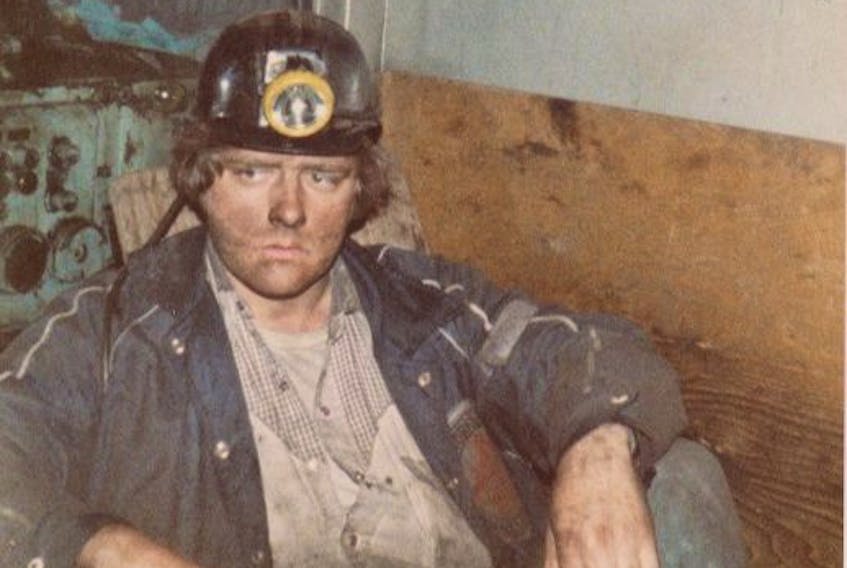Well now, boys, you're with the company now. Go find yourself a wife if you don't already have one. Buy a house, buy a new car. You have a job in the pits until you quit, retire, or die."
I still remember those words coming from a human resources manager named Ozzie when I was hired as an electrical apprentice at Prince Colliery in Point Aconi in 1977.
Recent columns and stories in the Cape Breton Post concerning the closure of the Donkin Mine brought that memory and others flooding back to me, especially ones pertaining to roof falls.
I was very young when I began working in the pits, one of many searching for a sustainable job here at home in Cape Breton. I was primarily raised by my grandfather who had 40 years in the mines and I still remember the mining jargon in our house.
"… black damp …”
“… roof falls ...”
“… flash fires ...”
“… runaway trips ...”
It all seemed normal to me. I guess one could say my destiny was to end up in the pit.
I can still remember with amazing clarity my first day in the mine, stumbling behind the person guiding us, we with our shiny pit hats, shiny rubber boots and clean clothes, banging our heads everywhere we went.

The first stop we made underground was in a room and pillar section called 2 West. There we stopped to watch two men operate a strange machine called a "Top Dog Roof bolter."
Once my eyes focused a bit, I recognized one of the men as a distant cousin.
"Hi, Mick! What are you doing?" I asked.
"Roof bolting," came the short reply.
Mick was a poster boy for brevity. Then he said: "Steve, is that you? What the hell are you doing down here?”
"Working here I hope, just got hired."
"Hmmmph," said Mick.
He explained to me what he was doing and I asked him if the process to support the roof worked.
"Well, Steve, if you're working here, you'll soon find out," he replied, with a wry grin.
That I did. The miners in Prince called the roof bolts "sky bolts." They said that the only way they would work was if they could be long enough to reach the surface where a nut and washer could be fastened on them to hold them in place.
Early in my career, I often would go into a section where it had come in "to the blueberries." (Implying that so much roof came in that the blueberry fields above ended up in the pit with us).
The aforementioned planks were splintered and a crooked bolt here and there sticking out of the roof was all that was left of the efforts to hold up the tonnes of stone above.
So, we tried longer bolts. That didn't work either.
Other ideas were tried until, finally, we ended up installing the H-beams with corrugated tins, and steel H-beam legs supporting them. The legs were protected from skidding out sideways by specially-cut angle iron known as "hammerlocks."
It seemed as if we had finally licked the problem until the steel H-beams began to bend and sag in the middle. They eventually sagged so much that it was difficult to walk under them.
An effort was made to correct this by calling in the "brushers," a special crew whose job was to blast stone down from the roof and clean it up where required. They knocked the legs out, let the roof cave in, then simply turned the u-shaped rails upside down to form what looked like a crude "arch."
Then somebody finally said, "We'll arch the deeps," which meant that semi-circular rails were installed as supports. The arches would take the weight and distribute it in such a way that the roof problems became less prevalent.
But, arch-railing is expensive and time-consuming, and there are no returns in great amounts of coal retrieved which would generate revenue.
By that time, we had descended deep enough to start mining in longwall fashion. Longwall mining returns approximately 90 per cent of the coal in the seam, as opposed to 60 per cent retrieved in room and pillar, which is what they were doing in Donkin.
I guess that for Kameron Coal, it wasn't worth the effort or the cost to go to the lengths that Devco did. Times have changed since then and coal has become the "boogey-man" of the energy world, whereas in our time, it was the saviour.
I am truly saddened that the people working there have lost their jobs - good-paying employment in their home community. I know how much the closure of Devco impacted the workforce and indeed our island in general. However, I also know that only the grace of God prevented somebody in Prince from being flattened, and was expecting at some point to hear that employees in Donkin experienced what we miraculously avoided.
If Donkin ever does resume production, may the employees going underground have sharp eyes and ears, carefully think out every step of their day in the face of continuously changing conditions, and as my grandfather used to say, "Be ready to run so fast that someone could play checkers on your shirt tail."
Steve Woods was raised in the Cranberry area of Sydney Mines. He was first hired in Prince Colliery as an electrical apprentice in 1977. He now lives in Little Bras d'Or where he now spends his time working as an electrician/electronics tech, exploring Cape Breton with his wife, and learning to fly Cessnas.









